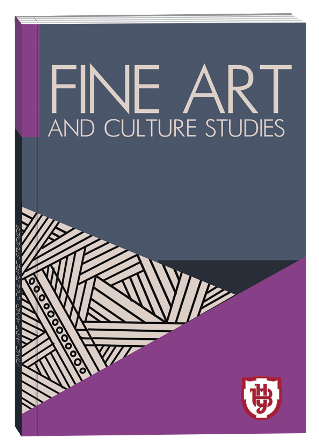CULTURAL EXPERTISE AND CULTURAL ANALYTICS AS SOCIO-CULTURAL PRACTICE IN CONDITIONS OF INSTABILITY
DOI:
https://doi.org/10.32782/facs-2025-3-2-32Keywords:
cultural expertise, risk, stochasticity, cultural analytics, methodology of the humanities, cultural expert, cultural analytics in UkraineAbstract
Purpose of the article. This article aims to conceptualize cultural expertise as a multidisciplinary and integrative analytical practice that is transforming under the conditions of instability, risk, and stochasticity inherent in contemporary culture. Methodology. The research is based on an interdisciplinary approach that combines philosophical and cultural studies methodologies, hermeneutic concepts, the sociology of knowledge, theories of the risk society (U. Beck, N. Luhmann, A. Giddens), synergetic frameworks, concepts of simulation (J. Baudrillard), liquid modernity (Z. Bauman), and contemporary cultural analytics. The paper explores paradigm shifts in the understanding of expert knowledge within the humanities.Scientific novelty. The novelty lies in the interpretation of contemporary cultural expertise as a heuristic and interpretive practice that operates in conditions of risk, fragmentation, and uncertainty. It is demonstrated that in the current epistemological context, expertise no longer functions as a stable assessment tool but transforms into a context- sensitive, nonlinear, and interpretive activity. Special attention is paid to phenomena such as “liquid modernity,” cultural stochasticity, risk, and simulacra, which redefine the nature of expert judgment. The argument is made that cultural expertise must account for the multilayered complexity and fragmentation of culture, employing interdisciplinary methods as well as affective and non-verbal modes of cognition. The expert is viewed not as an arbiter of truth but as an interpreter within a field of multiple meanings, while cultural analytics should focus on mapping complexity rather than reinforcing fixed norms. Emphasis is also placed on the importance of existential responsibility, intuition, and creativity in expert practice. A new model of the cultural analyst is outlined–as a transdisciplinary integrator and facilitator of meaning- making within a turbulent socio-cultural environment.Conclusions. In the context of socio-cultural instability and sweeping transformation, cultural expertise is acquiring new forms: it is mobile, intertextual, and transdisciplinary, capable of interpreting complex cultural processes in their diverse manifestations. Methodological openness, existential responsibility, and critical thinking become essential conditions for effective analytical work. This form of expertise not only orients one within the chaos of culture but also initiates new processes of meaning-making.
References
Белоусов О. С. Концепція «суспільства ризику» в контексті аналізу сучасного глобального соціуму. Науковий журнал «Політикус». 2016. Випуск 3. С. 32–36.
Baudrillard J. Simulacres et simulation. Paris : Galilée, 1981.
Bauman Z. Liquid Modernity. Cambridge : Polity Press, 2000.
Бауман З. Текуча сучасність / пер. з англ. В. Рак. Київ : Критика, 2004.
Beck U. Risk Society: Towards a New Modernity. London : Sage, 1992.
Deleuze G., & Guattar, F. (1980). Mille plateaux. Paris : Minuit, 1080.
Foucault M. Les mots et les choses. Paris : Gallimard, 1966.
Giddens A. Modernity and Self-Identity. Cambridge : Polity Press, 1966.
Lyotard J.-F. La Condition postmoderne: rapport sur le savoir, Minuit, 1979.
Luhmann N. Risk: A Sociological Theory. New York : de Gruyter, 1993.
Prigogine I., & Stengers, I. Order out of Chaos: Man’s New Dialogue with Nature. New York : Bantam, 1984.
Florida R. The Rise of the Creative Class. New York : Basic Books, 2002.
Florida R. The New Urban Crisis. New York : Basic Books, 2015.








